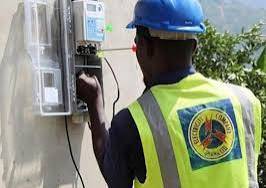Is ECG Using the New Meter to Milk Money from Us? Concerns Among Ghanaians
In recent months, there has been growing dissatisfaction among Ghanaians regarding the introduction of a new prepaid meter system by the Electricity Company of Ghana (ECG). The new system, aimed at modernizing and improving the efficiency of electricity distribution, has instead sparked controversy, with some customers accusing ECG of using the new meters to exploit consumers financially. This article delves into the concerns raised by Ghanaians about the new prepaid meter system and examines whether these claims are justified.
The Introduction of the New Meter
The Electricity Company of Ghana, in its bid to improve service delivery and reduce losses associated with electricity theft and billing inaccuracies, introduced a new prepaid meter system. This system replaced older meters and aimed to provide consumers with a more accurate way of managing their electricity usage and payments. The meters are designed to allow users to pay for electricity in advance, much like mobile phone airtime, and to monitor their usage in real-time.
However, despite its apparent advantages, the introduction of the new meters has not been without controversy. Some consumers have raised concerns that the new system is being used by ECG as a way to generate more revenue, often to the detriment of the public. These concerns have ignited a public debate, with accusations that the new meters are being exploited to "milk money" from Ghanaians.
Common Complaints and Concerns
1. Unexplained Increases in Charges
One of the main complaints from consumers is the significant rise in electricity charges after the installation of the new prepaid meters. Many customers have reported that the meters seem to consume more credit compared to the older system, even when they are using electricity in the same manner as before. Some have claimed that they receive less electricity for the same amount of money, which has led to frustrations and accusations that ECG is artificially inflating prices under the guise of modernization.
2. Lack of Transparency
Another point of contention is the perceived lack of transparency regarding how the new meters calculate and distribute charges. Several consumers have pointed out that the system seems difficult to understand, with no clear breakdown of how credits are consumed. This has left many feeling that they are being taken advantage of, especially since they are not provided with enough information to verify the accuracy of their usage or charges.
3. Technical Issues and Malfunctions
Some Ghanaians have also expressed dissatisfaction with the technical performance of the new meters. Reports of malfunctioning meters that do not register payments properly or provide incorrect readings have been common. In some cases, customers have found that their meters stop working altogether or reset themselves, leading to the loss of prepaid credits. Such malfunctions not only cause inconvenience but also fuel the belief that ECG is not managing the new system as effectively as it should, exacerbating the perception that it is using the meters to exploit consumers.
4. Inadequate Customer Support
The introduction of the new prepaid meters has been accompanied by complaints about inadequate customer support from ECG. Many consumers have found it difficult to get timely assistance when issues arise, whether it's for faulty meters or discrepancies in billing. This lack of support has only heightened frustrations, with some accusing ECG of being indifferent to the problems faced by customers after implementing the new system.
The Larger Debate: Exploitation or Necessary Change?
The claims that ECG is using the new meters to "milk money" from Ghanaians highlight a deeper issue of trust between the public and the utility company. On one hand, the new meters are designed to reduce revenue losses from electricity theft and improve the company’s ability to manage consumption and billing. This, in theory, would benefit both ECG and consumers by ensuring more accurate billing and reducing the problem of power outages caused by overloading and faulty connections.
On the other hand, the frustration of consumers cannot be ignored. For many, the new meters seem to represent another example of a public utility that is less focused on improving service and more concerned with increasing revenue. The perception of exploitation is exacerbated by the lack of clear communication and transparency surrounding the rollout of the new system.
Conclusion
While there is certainly a desire among many Ghanaians for improvements in the way electricity is managed and billed, the concerns over the new prepaid meters suggest that the rollout process needs further attention. It is essential that ECG addresses the grievances of its customers by providing clearer information, improving customer support, and ensuring that the new meters function as promised. Until these issues are resolved, the perception that ECG is using the new meters to "milk money" from consumers will likely persist, potentially undermining the broader goal of modernizing the country’s electricity infrastructure. Only time will tell whether the new meters will live up to their promise or become yet another point of contention in the relationship between ECG and its customers.



